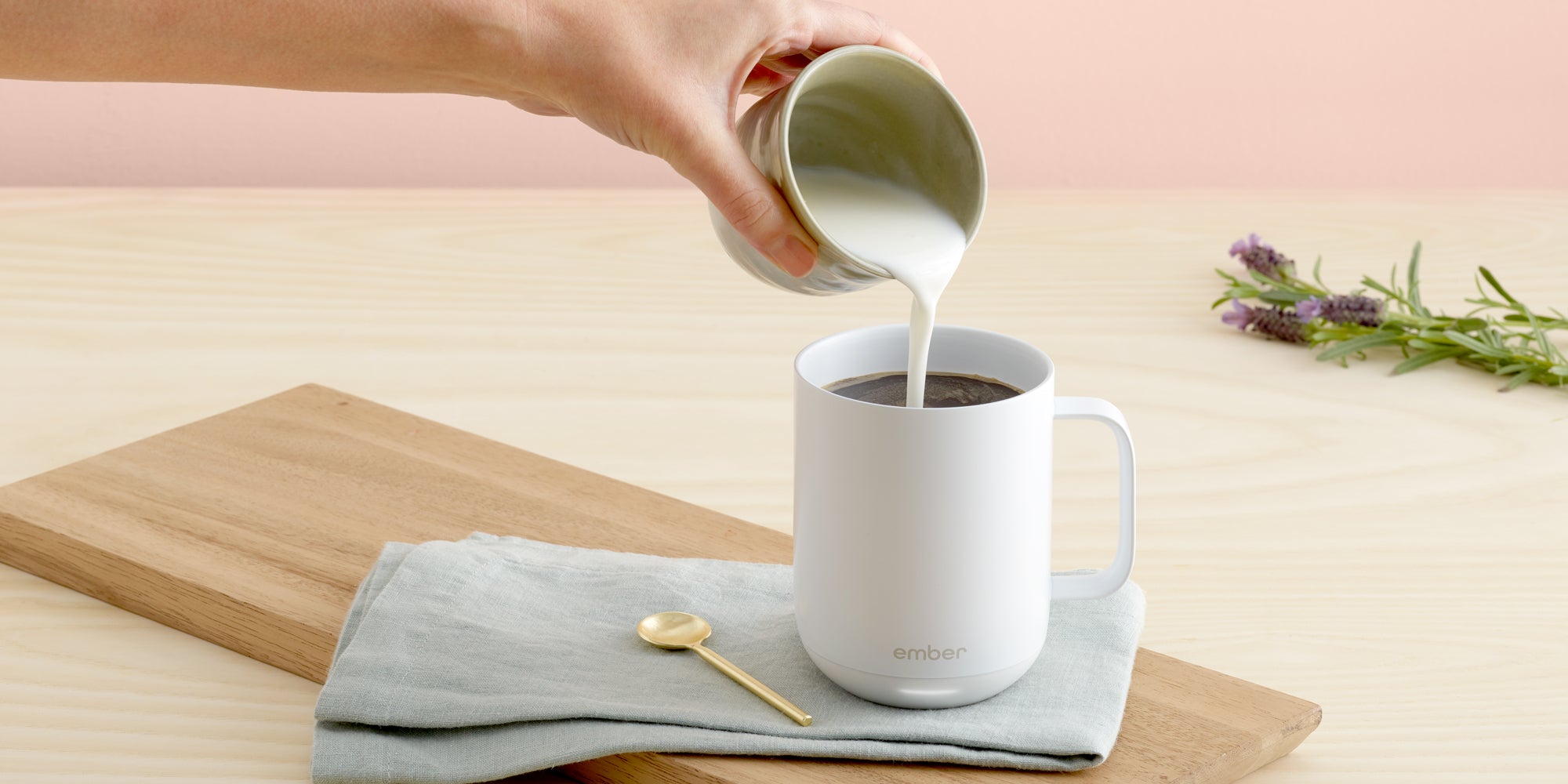
The 7 Most Popular Espresso Drinks
Most espresso drinks are made with the same two ingredients: espresso and milk. So how could such a simple combination produce what seems like dozens of different drinks?
The answer usually lies in differing ratios of milk to espresso and the different ways the barista steams and textures the milk for each drink. To help you know exactly what to expect the next time you order a cortado or cappuccino, we’re breaking down the anatomy of these popular espresso drinks.
 |
LatteEspresso + Steamed Milk + Thin Layer of FoamThe classic latte features a shot of espresso, steamed milk, and a thin layer of foam on top. Outside of Italy – where straight espresso shots and cappuccinos reign supreme – the latte is arguably the most popular and well-known espresso drink. The milk in a well-made latte should have a consistent, velvety texture with a light layer of airier foam on top. For more on what makes the perfect latte, see our post on How to Make the Perfect Latte at Home. |
 |
CappuccinoEspresso + Steamed Milk + Thicker Layer of FoamCappuccinos usually have less milk and more foam than a latte, resulting in a stronger-tasting drink with a frothier texture. Done right, a cappuccino should be equal parts espresso, steamed milk and foamed milk. It is traditionally served in a slightly smaller cup, and the foam layer is usually thick enough that a spoon can rest on it without immediately sinking in. For more on what makes the perfect cappuccino, see our post on How to Make the Perfect Cappuccino at Home. |
 |
AmericanoEspresso + Hot WaterAmericanos combine a shot of espresso with hot water. The drink is most popular among coffee-drinkers who enjoy the taste of espresso but find it too strong on its own or want a larger drink to savor. For more on what makes the perfect americano, see our post on How to Make the Perfect Americano at Home. |
 |
Flat WhiteEspresso + Steamed Milk + Very Little or No FoamFlat whites get their name from the texture of the milk they use, i.e. milk with very little foam. Flat whites first became popular in New Zealand and Australia before making their way to the U.S. They’ve been called “mini lattes,” but size isn’t the only difference between the two drinks. Flat whites tend to be smaller than both lattes and cappuccinos and have a stronger espresso to milk ratio. While lattes have a light layer of airy foam on top, the milk in a flat white is meant to be a glossy steamed milk with no airy foam. For more on what makes the perfect flat white, see our post on How to Make the Perfect Flat White at Home. |
 |
MacchiatoEspresso + Milk FoamContrary to popular belief, the traditional macchiato is not a large or sugary drink – just the opposite in fact. Macchiatos feature a shot of espresso topped with a dollop of milk foam. The simplicity of the drink allows you to appreciate the full strength of the espresso while still enjoying the added texture of milk foam. For more on what makes the perfect macchiato, see our post on How to Make the Perfect Macchiato at Home. |
 |
CortadoEspresso + Steamed Milk + Little or No FoamCortados usually feature a 1:1 ratio of espresso to steamed milk. They get their name from the Spanish cortar, (“to cut”) because the milk is meant to “cut” through the bitterness of espresso. Cortados tend to be smaller than the flat white, and unlike the macchiato, they mix milk throughout the espresso shot. For more on what makes the perfect cortado, see our post on How to Make the Perfect Cortado at Home. |
 |
MochaEspresso + Chocolate + Steamed Milk + FoamBest described as a latte with chocolate syrup, mochas are a sweet take on the classic latte. You are now equipped to go beyond your usual coffee routine and order a new espresso drink with confidence. Try your new espresso drink in the Ember Mug², which can maintain your prefered drinking temperature for up to 1.5 hours, so you can enjoy your hot drink until the last drop. For more on what makes the perfect mocha, see our post on How to Make the Perfect Mocha at Home. |
Related Articles

Slow Cooker Spiced Wassail
Late fall calls for gatherings that feel a little softer and a little slower. Warm kitchens. Candlelight. Friends drifting in and out. A pot of something fragrant...

Vanilla Bean Chai Latte
November has a different kind of calm. The rush of early fall settles, the days grow shorter, and comfort starts to feel like a daily necessity rather than a weekend treat.


